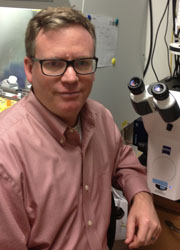People don’t think of the Environmental Protection Agency as a public health agency, says EPA Administrator Lisa P. Jackson, but the EPA’s job is to protect the health of adults and children by safeguarding air and water and promoting clean communities. Jackson was the keynote speaker last week at a Children’s Health Town Hall at Emory’s Rollins School of Public Health.
Children eat more, drink more, and breathe more in proportion to their body weight than adults, and without the EPA our jobs as parents would be much more difficult, said Jackson. And although a renewed focus on reducing air pollution has significantly improved air quality, still millions of young people have asthma and are particularly susceptible to pollution, and there have been no limits on some pollutants, such as mercury emissions from coal-fired power plants.
Last month the EPA presented the first national mercury and air toxicity standards for power plants, Jackson noted. This effort to cut emssions of mercury, arsenic, and other neurotoxins is a common sense goal that would save lives and prevent 17,000 premature deaths annually, she said.

Laura Seydel, Paige Tolbert , Stephanie Owens, EPA
The EPA recently named Emory and Georgia Tech as one of four new EPA Clean Air Research Centers and awarded $8 million to the new Southeastern Center for Air Pollution and Epidemiology (SCAPE) center. Center directors Paige Tolbert from Emory and Armistead (Ted) Russell from Georgia Tech will lead programs aimed at quantifying health effects from air mixtures containing toxic pollutants and studying the specific effects of toxic air on commuters, pregnant women, newborns, and adults with cardiac illnesses.
Russell noted the tremendous cost of air pollution, including millions of lost school days for asthmatic children, and the important of using study results as the basis for changes in policy.
A “Call to Action” panel of experts and advocates at the town hall suggested steps everyone can take to improve environmental health.
Environmental health champion Laura Seydel called for “zero waste zones” in homes, churches, and offices, and the outlawing of toxic chemicals to help create “zero toxic waste zones” in the bodies of adults and children.

Laura Seydel, Robert Geller
Dr. Robert Geller, director of the Southeast Pediatric Environmental Health Speciality Unit at Emory, and Director of the Georgia Poison Center, emphasized the importance of lowering exposure to toxic chemicals for children in the first two years of life, including contaminated soil. Civic leaders should expect the EPA to use the best science to advance its programs of reducing pollution.
Irene Barton of the Georgia PTA recommended using local school wellness councils to advocate for children.
Attorney Brian Gist of the Southern Environmental Law Center warned about mercury toxicity in Georgia fish and in sushi, and applauded efforts to regulate emission of mercury from coal-fired power plants.
Maeve Howett, an Emory pediatric nurse practitioner and a faculty member in Emory’s School of Nursing, encouraged everyone to make a personal commitment to choosing transportation that is less harmful to the environment, for the sake of children with asthma.
A videocast of the town hall is available.
Posted on
April 28, 2011 by
admin
in Uncategorized








